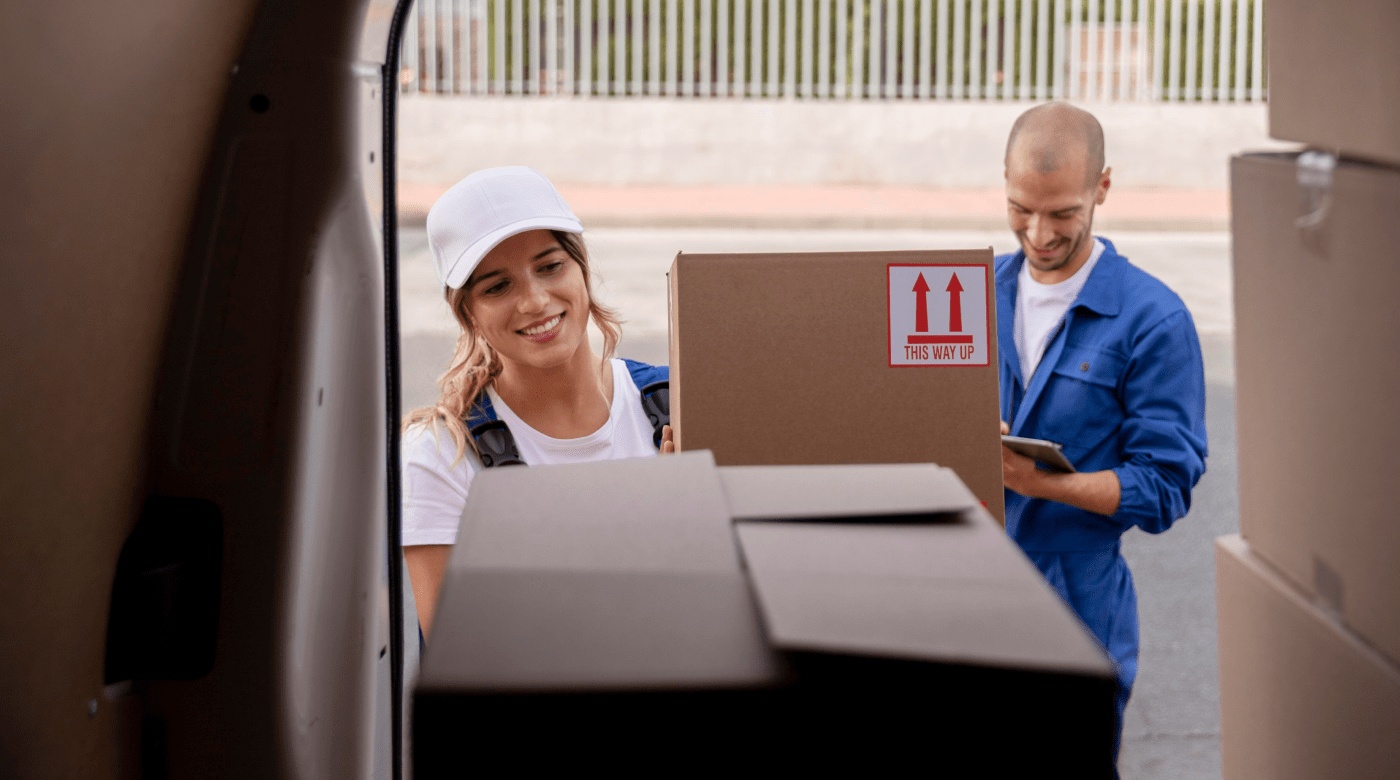While click-and-collect sales grew by over 100% in 2020, more than a third of customers say they’d be more inclined to use “buy online, collect in-store” options if retailers offered curbside collection.
The huge boom in consumer demand for curbside pickup means that you’ll need a smooth-running operation; otherwise, you’ll experience delays, order mix-ups, and disgruntled customers.
In this article, we’ll explain what curbside pickup is and why more retailers are offering this option. We’ll also look at how you can iron out the friction in your curbside collection process and create better customer experiences.
What is curbside pickup?
Curbside pickup is a “click-and-collect” option that provides online shoppers with a contactless service to receive their purchases.
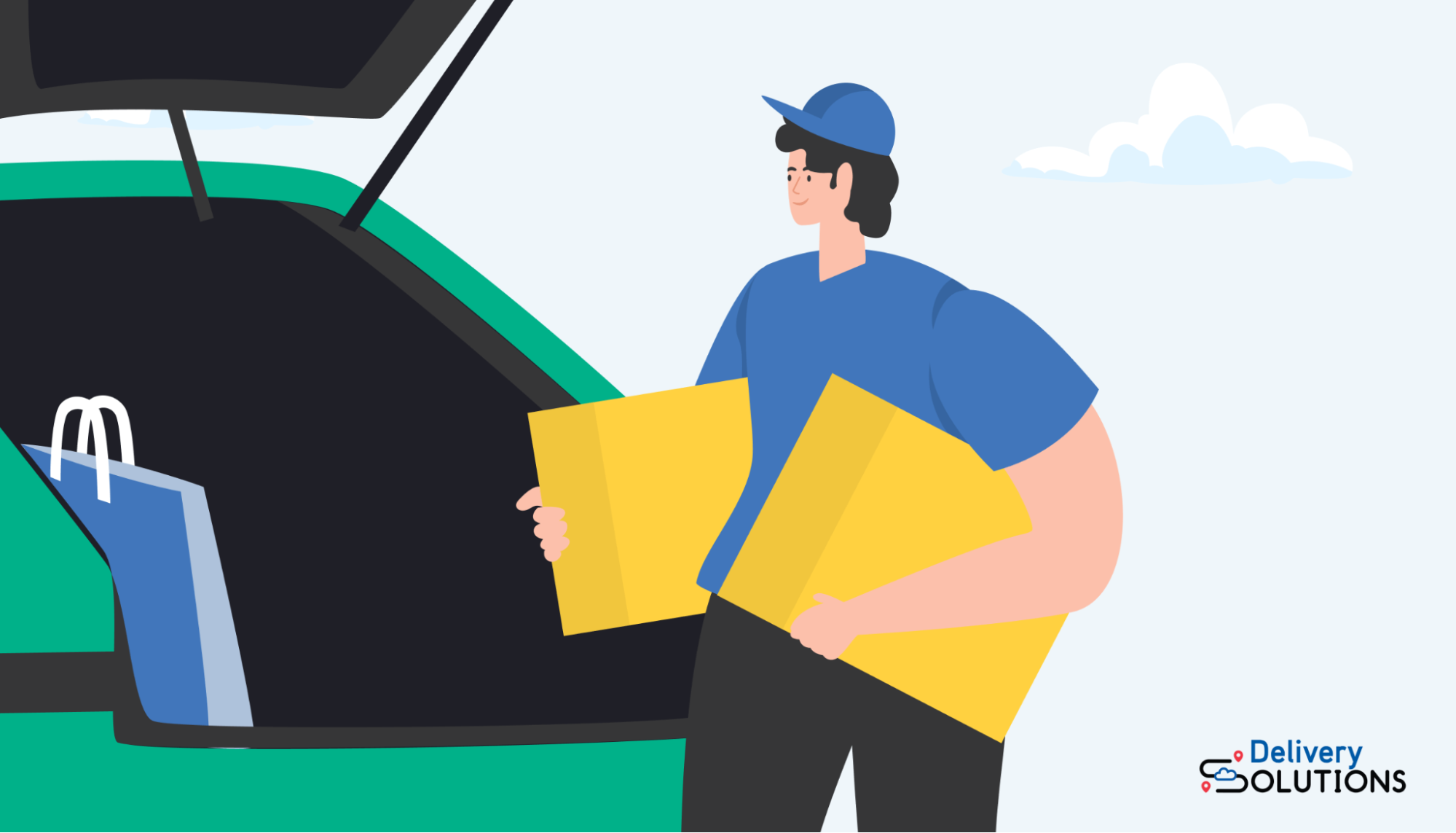
A customer places an order online and selects a pickup time to collect their goods from their local store or pickup point. When it’s their collection time, the customer parks in a designated area and a store representative brings their goods to the vehicle.
Not only does this mean that customers can avoid paying shipping costs, but it also facilitates social distancing for safer receipt of goods during these uncertain times.
The demand for curbside pickup service is high. By 2021, half of the top 1,000 retail chains — a 625% uptick from mid-2020 — had begun offering this service.
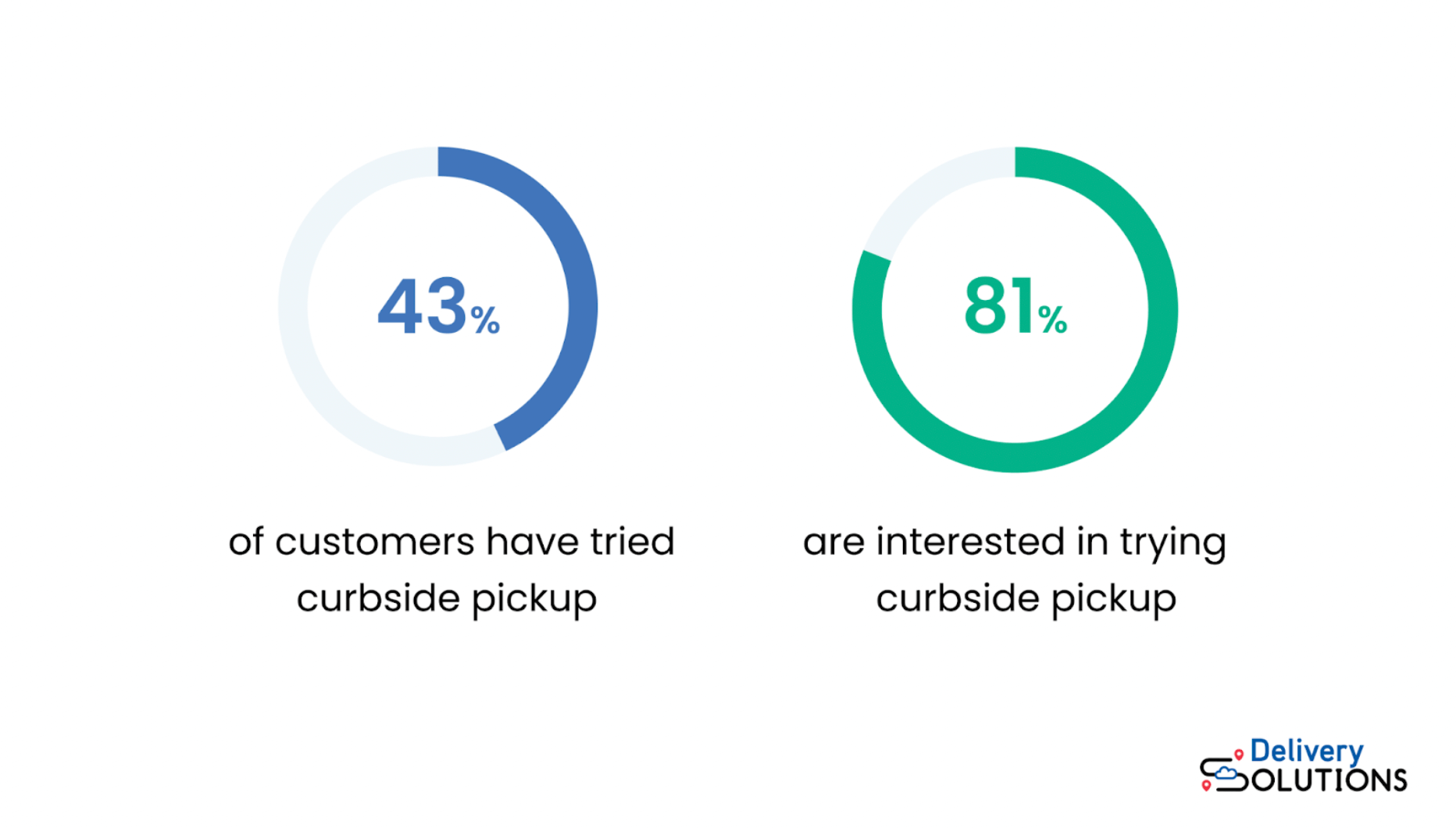
And it’s only getting more popular. While only 43% of customers have used curbside pickup so far, 81% say they’re interested in trying curbside pickup options in the future.
Common post-purchase frictions that impact the curbside pickup experience
While contactless curbside pickup is becoming more popular, poor management of pickup centers can negatively impact the customer experience.
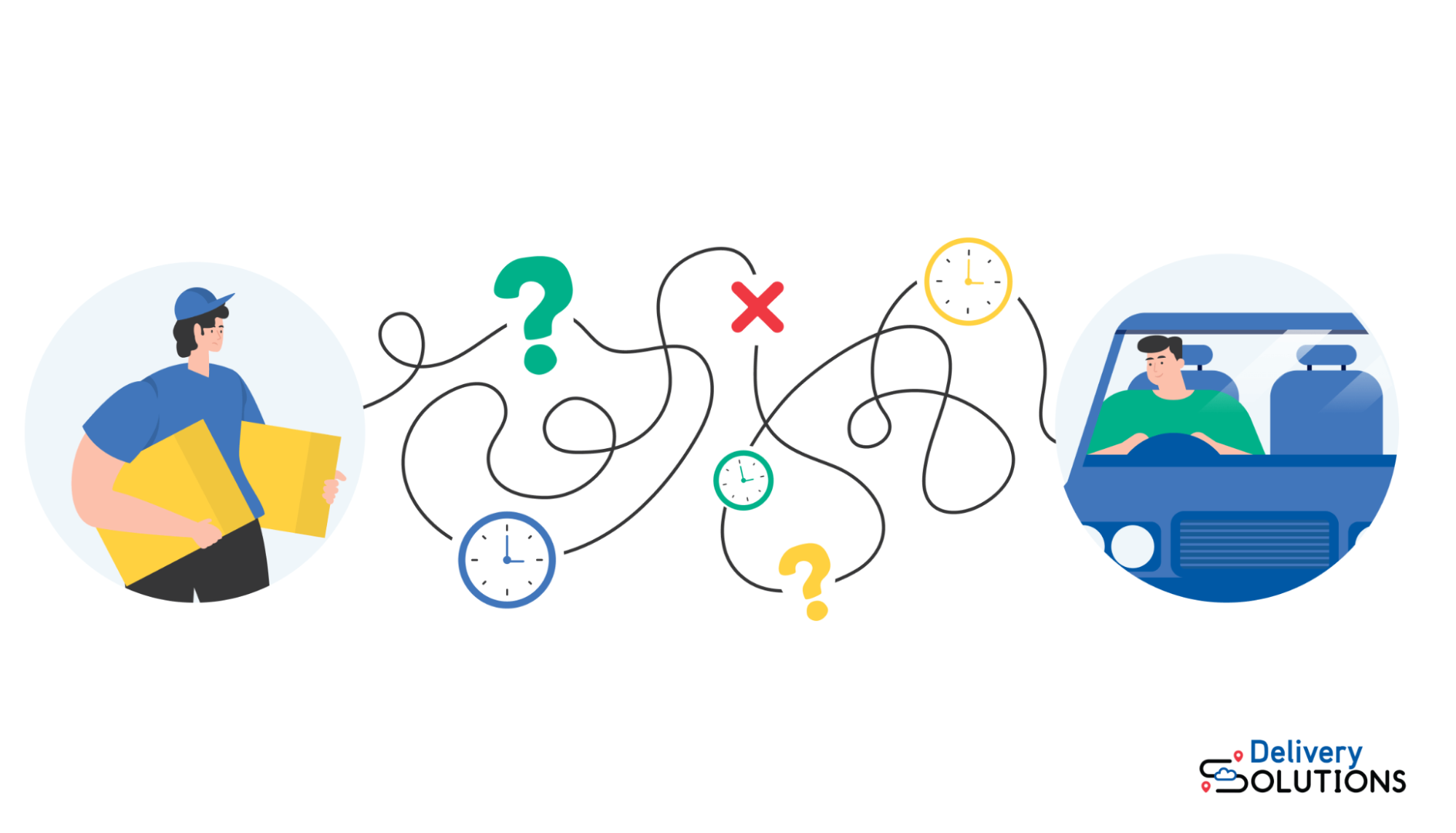
Here are some major issues to think about when establishing your curbside collection process:
- Customers can’t communicate delays. If a customer has no easy way to let you know they’re going to be late, this can throw your collection rota out of sync. This is especially problematic for time-sensitive collections, such as food orders that might get cold.
- Stores can’t notify customers of delays or changes. If you don’t have a way to let a customer know about changes to their order, they may arrive to collect an order that can’t be fulfilled, or they may have to wait longer than expected.
- Orders may not be ready for collection on time. With no clear way to prioritize orders based on how quickly customers will arrive, you’ll have to prioritize by who ordered first. This might mean orders aren’t ready by the time customers get to you.
- Order mix-ups are a possibility. Without a system for double-checking orders, you risk giving incorrect orders to your customers.
- Parking problems might occur. If you don’t allocate dedicated curbside pickup loading zones, customers will have to find the closest non-restricted spot themselves. This might mean customers will need to pay for parking, or they’ll park so far away that it takes store workers a long time to deliver their orders to their vehicles.
- Your staff might become overwhelmed. Without an allocated team to manage your fulfillment service and deliver curbside orders, you may find that your team is torn between in-store customers and curbside collections. This can result in delays.
Choosing a SaaS tool like Delivery Solutions will help you seamlessly manage curbside collections — preventing issues like the ones mentioned above.
10 ways to upgrade the curbside pickup process
Smart management of curbside pickups leads to a better customer experience.
Here are the most important ways to enhance your collection process for a seamless curbside service that leads to happy customers.
1. Use an intuitive dashboard to manage curbside pickups
It’s tough to manage curbside collections manually. Not only are you more likely to mix up orders and make mistakes, but you’ll also find that administration typically takes a long time.
Instead, try a curbside pickup management tool like Delivery Solutions to provide your team with an intuitive dashboard that handles all aspects of your curbside service.
You can view and manage all current orders in one place, making it easy to see customer details, track movements, view order histories, and respond to special requirements.
In doing this, you can identify customers as soon as they arrive and guarantee that the order you deliver to them is the right one.
An easy-to-use dashboard also makes it simple to change collections and contact customers about those alterations. This means customers won’t have to waste time waiting in their cars if their orders aren’t ready.
2. Provide customers with an easy-to-use app
Any good curbside SaaS tool not only serves your team but also simplifies the collection process for your customers.
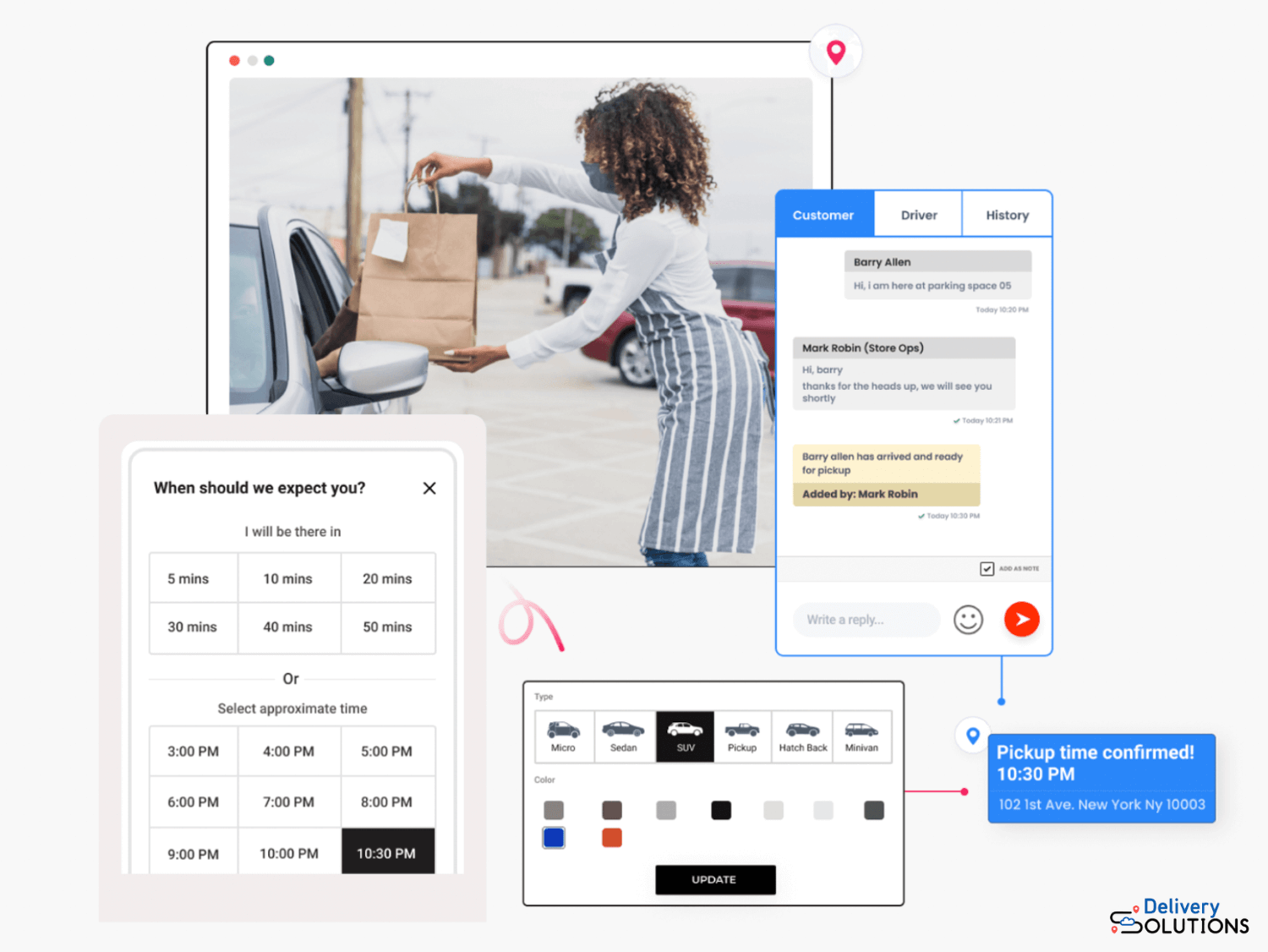
A straightforward app can help customers choose a pickup location and check the product availability for it. The app should also allow customers to book a curbside pickup time and enter identifying details about their vehicle to make it easy for store workers to find them.
On arrival, a customer should be able to use the app to notify the store that they’re ready to receive their order. That way, they aren’t waiting around for their order and the store workers aren’t wandering around looking for a customer who hasn’t arrived yet.
3. Harness geofencing for operational prioritization
A geofence is a virtual boundary that sets parameters around a real location. Companies can use geofencing to prioritize orders based on when customers are due to arrive.
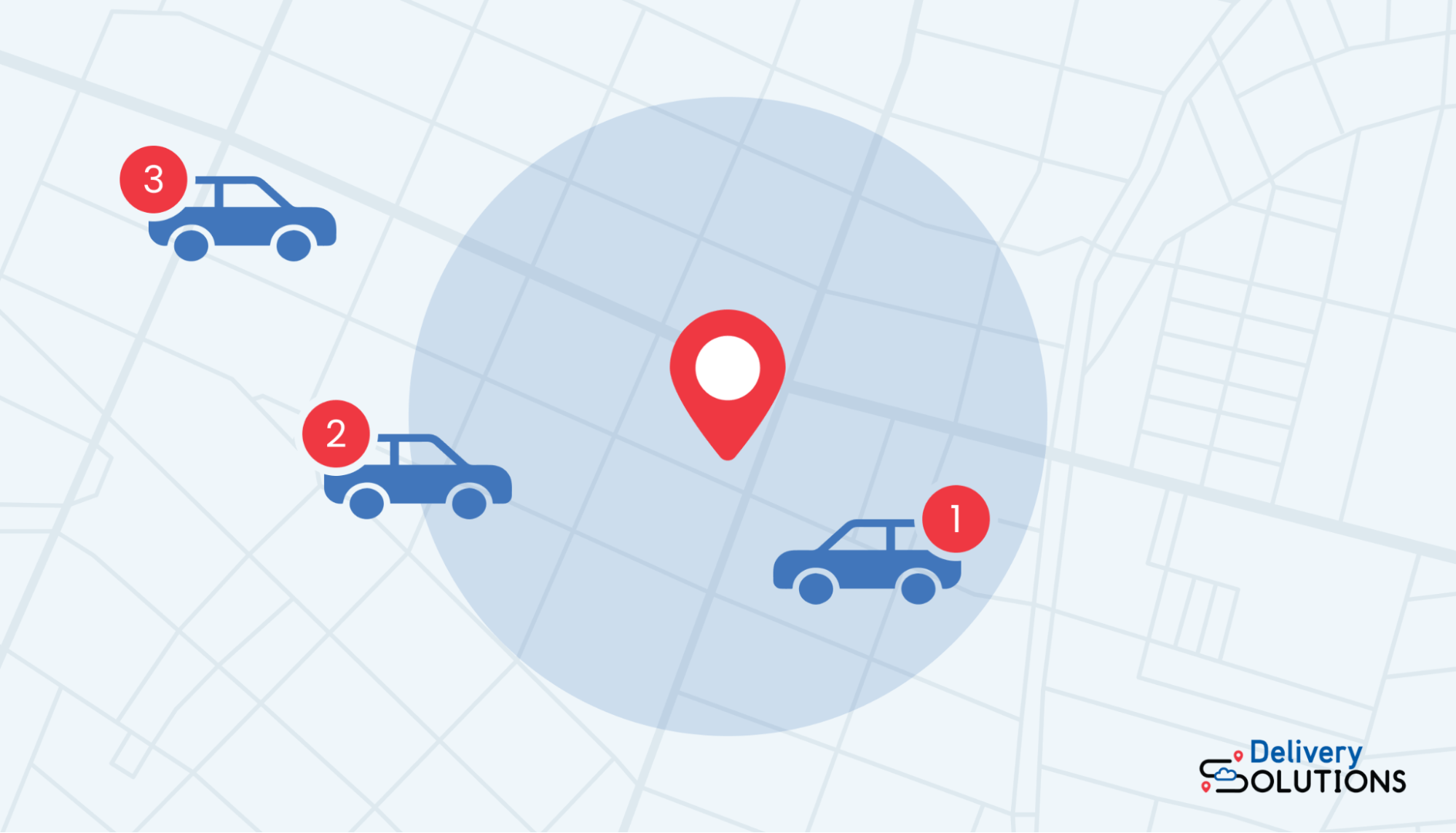
For example, imagine that you work in a pizza parlor that gets super busy at lunchtime. If it takes you 12 minutes to prepare and cook a pizza, you won’t want to start that pizza until the customer is 12 minutes away. If you start preparing the order too soon, the customer will end up with cold food. And if you start too late, the customer will have to wait for their order.
Furthermore, if you have lots of orders coming in at once, it can be tough to work out which pizzas to make first.
Without geofencing technology, you’ll need to prioritize orders on a first-come, first-served basis. However, this isn’t particularly effective. Customer A may order first, but they may be 10 miles away. Customer B may order later, but they’re only two miles away.
With Delivery Solutions’ distance-based geofencing technology, you can see how far away customers are. This enables you to prioritize preparation based on which customers will arrive first.
4. Automatically update customers on their collections
When it comes to online order deliveries, 83% of customers expect regular communication. So, why would collections be any different?
Customers expect more than a simple confirmation email about their collection slot. They want regular updates to make sure their order is on track so that their collection goes smoothly.
With a tool like Delivery Solutions, customers can track their orders live, and you can provide real-time updates on their collections and send them pickup reminders.
As a result, customers can react to changes accordingly and reorganize their schedule if they need to.
5. Create a designated pickup area
If you don’t have a designated curbside spot, mayhem can result. One consumer might park directly outside the store, another might park three blocks away, and a third might park illegally and get upset about getting a ticket.
Not only does this kind of disorganization make it tough for workers to deliver orders, but it also leads to unhappy shoppers.
If it’s hard to park near your store, customers run the risk of missing their collection slot trying to find a parking space. Plus, customers who choose curbside collection to avoid shipping costs are going to be angry if they have to pay extra to park.
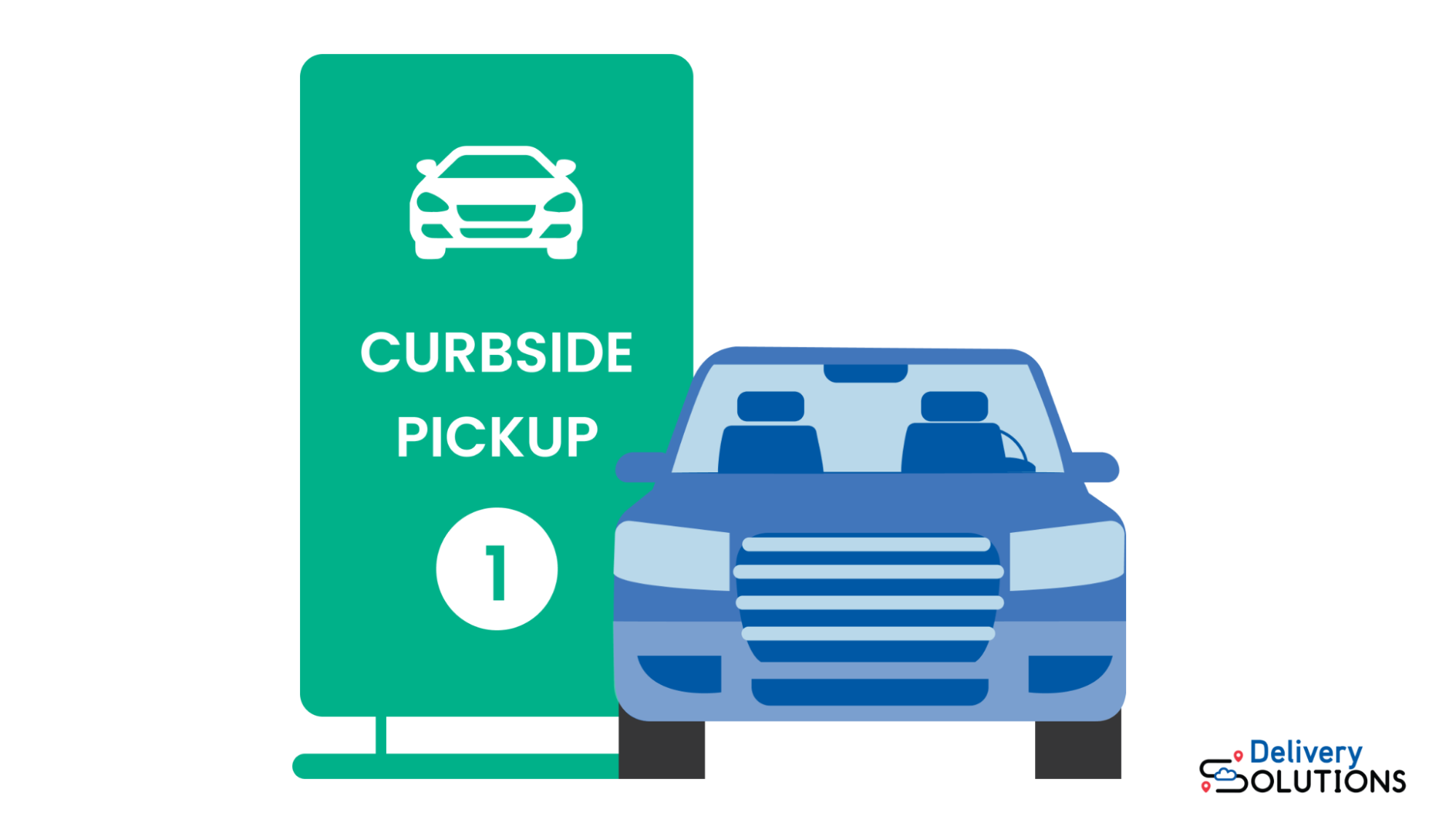
Whether you reserve a row of parking spots or create a new parking lot, it’s important that you consider where your curbside collection customers will wait for their orders. Make sure you have a clear curbside pickup sign so that customers know where to go.
6. Assign team members to curbside pickup duties
To keep curbside collections running on time, you’ll need a special team to handle them.
If your team has to both serve in-store customers and manage curbside collections, they might become overwhelmed during busy times. When staff need to manage lots of foot traffic in the store, curbside deliveries may be delayed.
Make sure you have a dedicated team to handle curbside collections.
7. Provide direct, real-time access to support
Since curbside pickups are time-sensitive, you need direct support channels that make it easy for customers to access support before their orders are ready.
Live chat and text support not only make it easy for customers to talk about their orders but also stop customers from jamming up generic phone support lines.
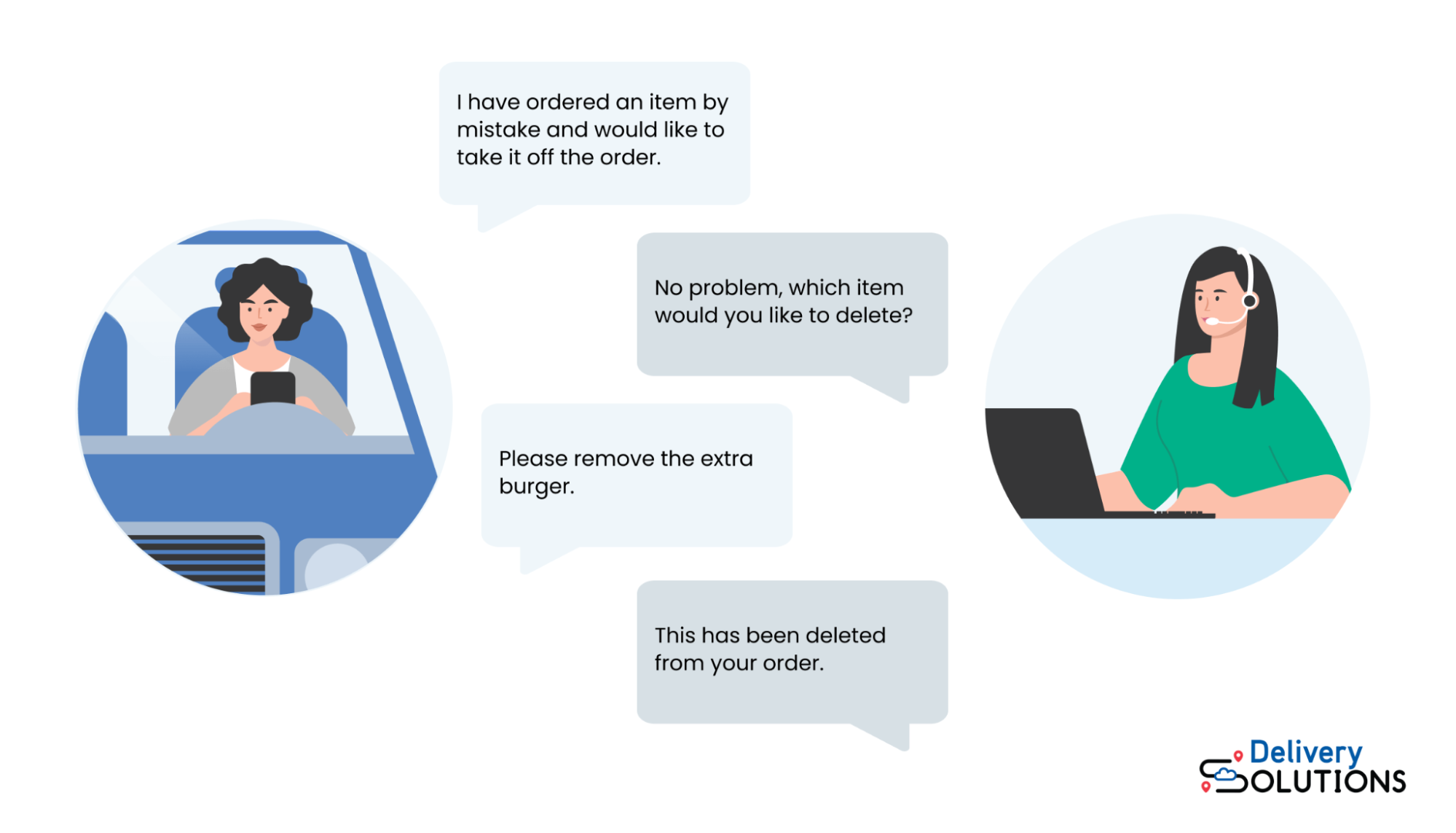
If customers don’t have easy access to real-time support, they may not be able to remedy their issues before their curbside collection time slot. This leads to uncollected items, collection delays, and very unhappy customers.
8. Make it easy for customers to change their collections
If customers have an easy way to change their pickup times, they won’t clog up customer service phone lines with requests to reschedule collections.
This will reduce not only the number of non-collections and late pickups but also the number of service agents needed to deal with order changes.
After all, half of consumers say they choose curbside pickup because it’s convenient. Being able to alter these collection times increases convenience, leading to a better overall customer experience.
9. Offer promotions to incoming customers
Upgrading your curbside collection process doesn’t just benefit the customer. You can also encourage extra online sales by offering promotions on additional purchases made en route.
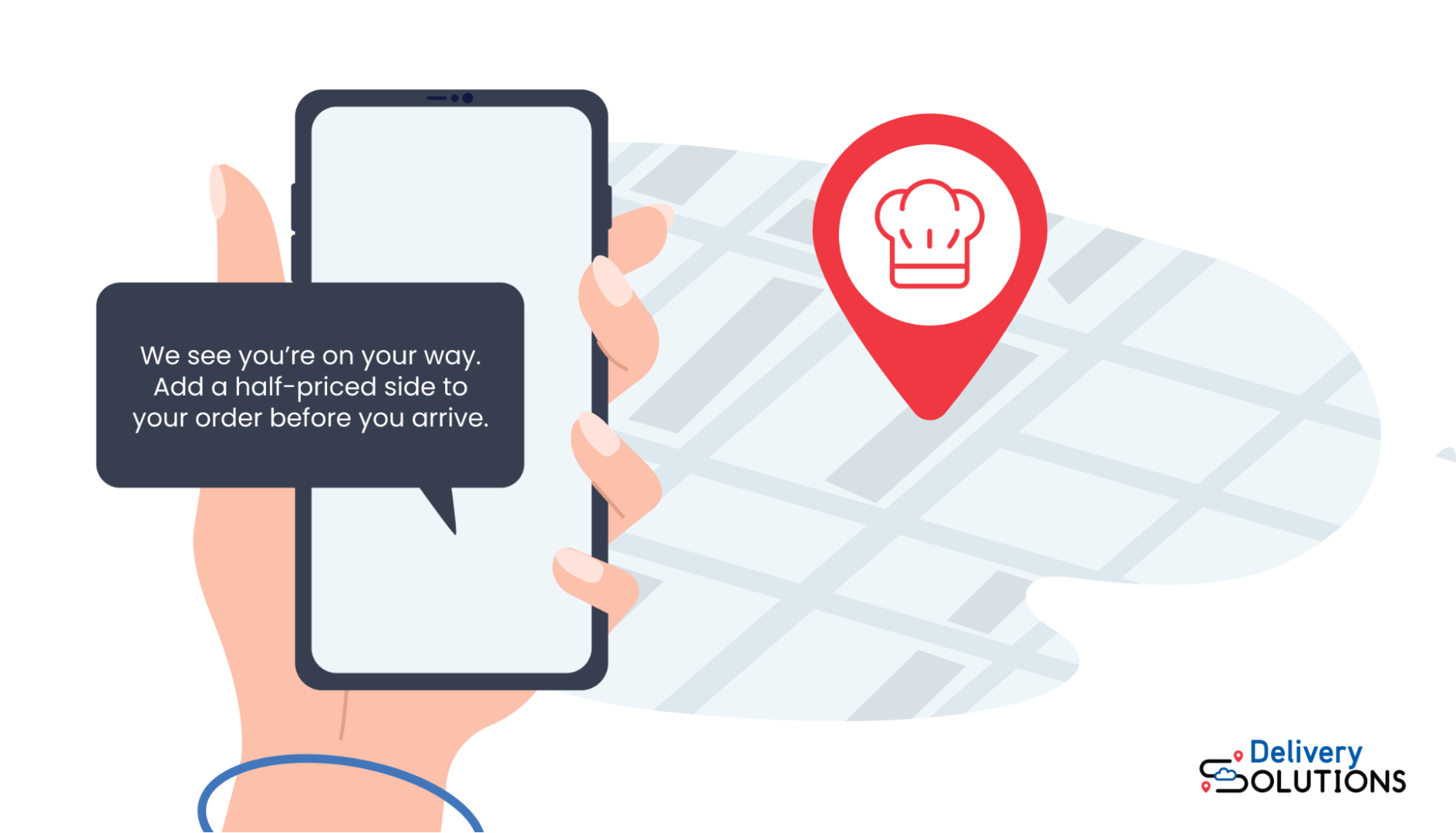
With a tool like Delivery Solutions, you can use geofencing to trigger deals that encourage customers to add to their orders while they’re on their way.
For example, when a customer enters a geofenced perimeter that’s five miles away from your restaurant, you can send them a text message that offers a two-for-one deal on any sides they add to the order before they collect it.
This doesn’t just boost your revenue, but it also shows customers that you’re thinking about their needs.
10. Anticipate customer needs using orchestration technology
A journey orchestration technology like Delivery Solutions helps you to anticipate your customers’ needs so that you can individualize the buying journey and foster a better connection with shoppers.
As Julio Hernandez, Global Customer and Operations Service Line Lead at KPMG International, explains:
“[Companies] are looking to be more proactive in how they manage their interactions with the customer, resolving possible issues before they arise, signposting the next best steps and nudging customers based on their real-time behavior, using their observations on parallel journeys to guide customers along more beneficial pathways.”
Use customer histories and previous real-time actions to recommend purchases, tailor promotions, and influence buying behavior. Alternatively, use collective historical customer data to segment new customers and provide tailored experiences based on how similar customers like to be served.
For example, if you’re sending a promotion triggered by a geofence, tailor the promotion based on the customer’s previous order history.
Conclusion
Curbside pickup is becoming an increasingly popular choice for customers looking for convenient, contactless order collection. However, the curbside pickup process needs to run smoothly to be successful.
Customers demand seamless post-purchase experiences that give them the convenience of collecting their goods without having to leave their vehicles. If your curbside pickup process is slow and clunky, customers won’t use the service again.
Delivery Solutions provides an intuitive tool that makes it easy for companies to manage curbside pickup, resulting in a friction-free collection experience. Schedule a demo with our team today to learn more.
Delivery Solutions orchestrates fulfillment experiences for enterprise retailers, supplying flexible optionality for consumers and priming merchants for innovation at scale.
Ryan Caldarone
Ryan is a Sr. Digital Marketing Manager with over ten years of experience in B2B eCommerce, specializing in brand storytelling and content. Having contributed to hundreds of creative projects for SMBs and startups across the tech, energy, and fine arts sectors, Ryan brings diverse perspectives.
Topics from this blog: Curbside Improvement
